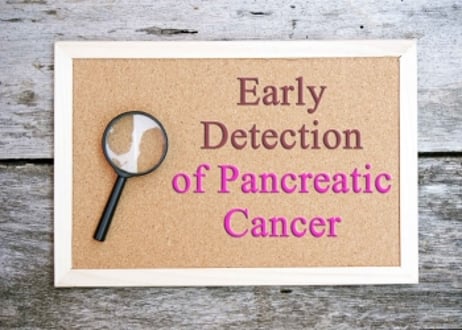TP53 Gene Mutations (Li-Fraumeni Syndrome)
Frequently Asked Questions about Inherited Mutations
Below are some of the questions people ask about the gene and and genetic testing. If you have already tested positive for a mutation, you can read more detailed information about risk, risk-management and treatment options in the quick links above.
What is and ?
is a gene that helps repair damage to your . People who are born with changes—called mutations—in the gene have a syndrome known as and an increased risk for many different types of cancer.
Does everyone with develop cancer?
The lifetime risk for cancer with a mutation is very high, and most people with an in the gene will develop cancer in their lifetime. Following the guidelines for screening and prevention increases the chances of preventing cancer or catching it at its earliest and most treatable .
My tumor has a mutation. Does that mean I have ?
No, testing positive for a mutation in your tumor does not necessarily mean you have .
mutations in tumors
Tumor testing (also known as testing) can look for different mutations within a cancer cell. Doctors order these tumor tests to make decisions about the best way to treat the cancer. Unlike normal cells, cancer cells often have many different types of mutations. Mutations that are only found within cancer cells are called acquired (somatic) mutations. is a common found in cancer cells. People with somatic mutations in their cancer cells do not develop .
TP53 mutations
Most people who are born with mutations inherited the mutation from one of their parents. These people will have the mutation in every cell in their body. Mutations that are inherited are called mutations. People with TP53 mutations have . Genetic testing is used to test people for an in and .
De Novo mutations
Some people with did not inherit their mutation from either parent. This is known as a de novo mutation. De novo mutations happen to a person during development in the womb before they are born. People with de novo mutations may develop Li-Fraumeni cancers, but depending on when the mutation happened during development, they may or may not have the mutation in every cell in their body. If the mutation is in their egg or sperm, they can pass the mutation on to their children.
What are the signs of ?
Some of the signs that may indicate include one or more people in the family with:
- breast cancer at a very young age, especially at age 30 or younger.
- sarcoma, brain cancer, or adrenal cortical cancer, especially before age 45.
- cancers diagnosed before age 30.
This is not a complete list. FORCE recommends speaking with a genetic counselor who can help make informed decisions about genetic testing.
How do I find out if I have ?
Genetic testing is a type of medical test that can help people learn if they have an in and other genes. The test can be performed on blood, saliva or tissue. The sample is collected and sent to a genetic testing lab.
It's a good idea to speak with a genetics expert before having genetic testing. They will answer your questions about testing and ensure that the correct test is ordered.
What are the cancer risks for people with ?
People with an in have a very high lifetime risk for different types of cancers, including:
- brain cancer
- breast cancer
- colorectal cancer
- pancreatic cancer
- sarcomas
- other cancers
The risks for cancer begin at a very young age.
What can people do if they have ?
If you test positive for a mutation, you have options. There are expert guidelines and clinical trials that focus on:
These guidelines are based on the most current research and updated yearly. People who test positive for a mutation should speak with a genetics expert to make sure that their medical care is based on the most up-to-date information.
If you test positive for a mutation, you should inform your close blood relatives (first-, second-, and third-degree relatives) about your test results and encourage them to speak with a genetics expert.
Get notified when updated information becomes available.
SIGN UP FOR CONTENT UPDATESIn the News
Personal Story : Living a full life with Li-Fraumeni syndrome
This XRAY review is about a five-time cancer survivor who has an inherited mutation in the TP53 gene. People with...
More Information for People with Mutations ()
Cancer Risks
Cancer risk estimates are updated based on the latest research. Read about the lifetime risk for different cancers in people with inherited TP53 mutations.
Risk Management Options
Read about the latest expert guidelines for cancer screening and prevention for people with a TP53 mutation. Learn about research studies enrolling high-risk patients.
Cancer Treatment Options
People with a TP53 mutation who have been diagnosed with cancer may qualify for specific treatments or clinical trials.
Other Considerations
People with TP53 mutations can develop cancer beginning at an early age. Learn about other important considerations for people with inherited TP53 mutations.
More Resources
Participate in Research
The studies below are enrolling people with mutations. To search for more studies, visit our Search and Enroll Tool.
Screening Study for Men at High Genetic Risk for Prostate Cancer
Clinicaltrials.gov identifier: NCT03805919
Prostate Cancer Genetic Risk Evaluation and Screening Study (PROGRESS)
Clinicaltrials.gov identifier: NCT05129605
Observing People and Families Affected by Li-Fraumeni Syndrome (TP53 Mutation )
Clinicaltrials.gov identifier: NCT01443468




